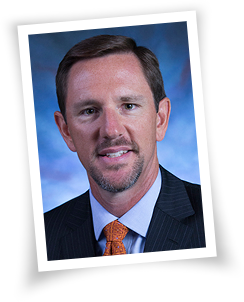The ethnic diversity of the Southern Baptist Convention is rapidly growing. African American churches affiliating with the SBC and culturally diverse church plants account for most of this growth. According to the North American Mission Board, between 1998 and 2013, membership in mostly non-white churches increased by 116 percent. In 2014, more than 58 percent of churches started by Southern Baptists were non-white. Nearly one-fourth of SBC churches now have a membership where the majority race is not Caucasian.
Especially over the past two decades, local churches, associations, state conventions, and the North American Mission Board have been very intentional in evangelism efforts targeting the various ethnic groups in our communities. The Kentucky Baptist Convention is home to Hispanic churches, Korean churches, Cambodian churches, Native African churches, South Asian churches, Vietnamese churches, and a growing number of intentionally multi-ethnic churches.
The growing number of African American churches in the SBC is a unique testimony to the reconciling power of the gospel. As a denomination, Southern Baptists were tragically on the wrong side of history when it came to defending the dignity of Africans brought to America by the international slave trade. Our denomination was launched on the predication that slaveholders should receive endorsement and support as missionaries and many of the leading figures in SBC history were not only sympathetic to slavery, but were slaveholders themselves.
How have Southern Baptists come from such a sinfully tragic past into such a bright future? Many white Southern Baptists have walked the pathway of repentance. The SBC and KBC have both adopted multiple resolutions confessing our sin and seeking reconciliation with those whose forebears were degraded and enslaved by our forebears. Resolutions adopted during the most recent KBC annual meeting expressed: “A biblical worldview requires all Christians to unite together in order to advance the gospel. … We acknowledge past and present racism in our hearts. … We renounce and oppose all forms of racism which distort the message of the gospel.”
But far more important than votes cast and resolutions adopted is the resolve to love and serve our neighbors of every color and ethnicity. Love is the only real difference-maker in the struggle to overcome racism.
How ironic is it that the only denomination to have been started over the insistence to grant approval to the institution of slavery would be planting and welcoming into fellowship such a large number of African American and ethnically diverse congregations? More than unlikely, it would seem impossible – unless you know the ways of the God of the Bible.
Consider the irony of Israel, one of the weakest and most despised people groups on the planet, becoming God’s elect. Consider the irony of Rahab, the prostitute, being included in the book of Hebrews’ list of those who modeled faith. Consider the irony of David, the youngest of Jesse’s sons, being chosen by God to be the king of Israel. Consider Paul, the foremost persecutor of the church, becoming an apostle, a prolific church planter, and giving his life for the gospel.
Indeed, as Paul contends in 1 Corinthians 1, God turns the wisdom of the world on its head and chooses to use what is despised so that our boasting may only be in Him. As despicable as it is that Christ followers would make biblical arguments in order to dehumanize and enslave fellow image bearers, God has mysteriously chosen these very people, Southern Baptists, to model the reconciling power of the gospel as black and white Southern Baptist churches work side by side to take the gospel to the nations near and far.
For that Southern Baptists can take no credit. To God alone be praise!

